The Board of Supes Tuesday passed a resolution calling for a ceasefire in Gaza, the result of weeks of advocacy and organizing—and a last-minute compromise by Sup. Aaron Peskin.
Although there was no public comment—that happened at Monday’s Rules Committee meeting, and lasted for more than five hours—the board chamber was packed, with a large crowd spilling out into the halls and the overflow room.
The Rules Committee Monday rejected a series of amendments by Sup. Matt Dorsey, who argued that any statement that could be construed as opposing Israel’s attacks on Hamas could encourage terrorism. “It might send a dangerous message that terrorism works,” he said.
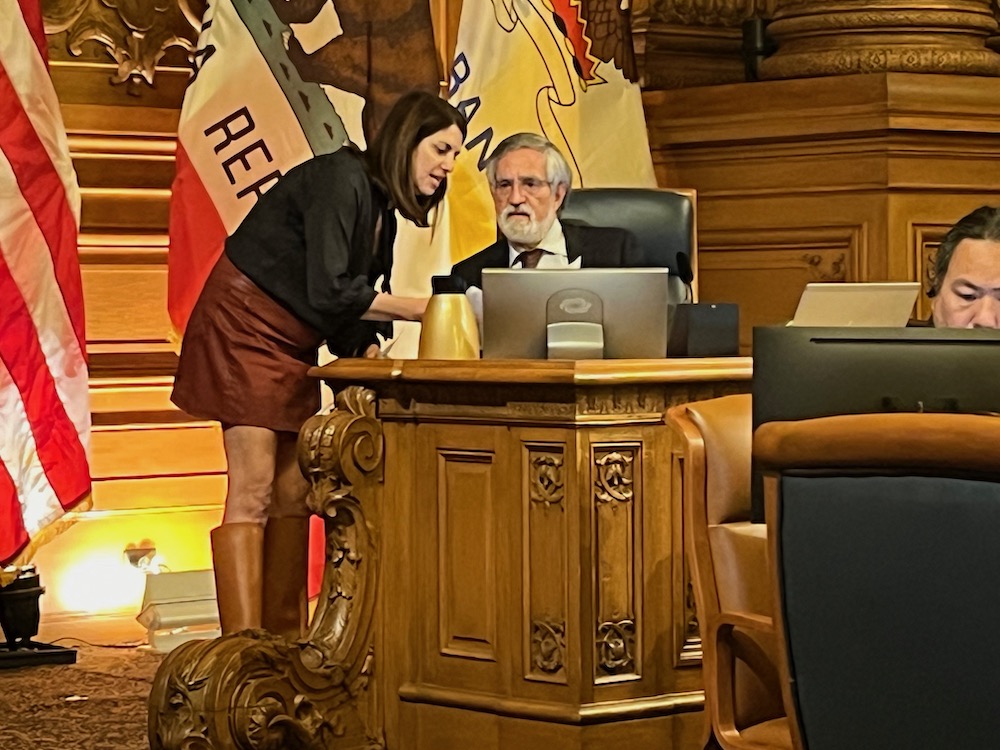
The panel, with Sups. Shamann Walton and Ahsha Safai voting yes, sent the original resolution, by Sups. Dean Preston and Hillary Ronen, to the full board.
Peskin started off the discussion, noting that his mother was born in Tel Aviv in 1940 and that her sister, his aunt, was involved in the resistance to the British occupation. He said, as did other speakers, that “this situation on the other side of the word affects many of us here personally.”
He then suggested that the Preston-Ronen resolution could be simplified be eliminating all of the “whereas” clauses, which people on all sides were arguing over, and “and just resolve that we call for a sustained ceasefire and urge the Biden Administration to have a ceasefire.”
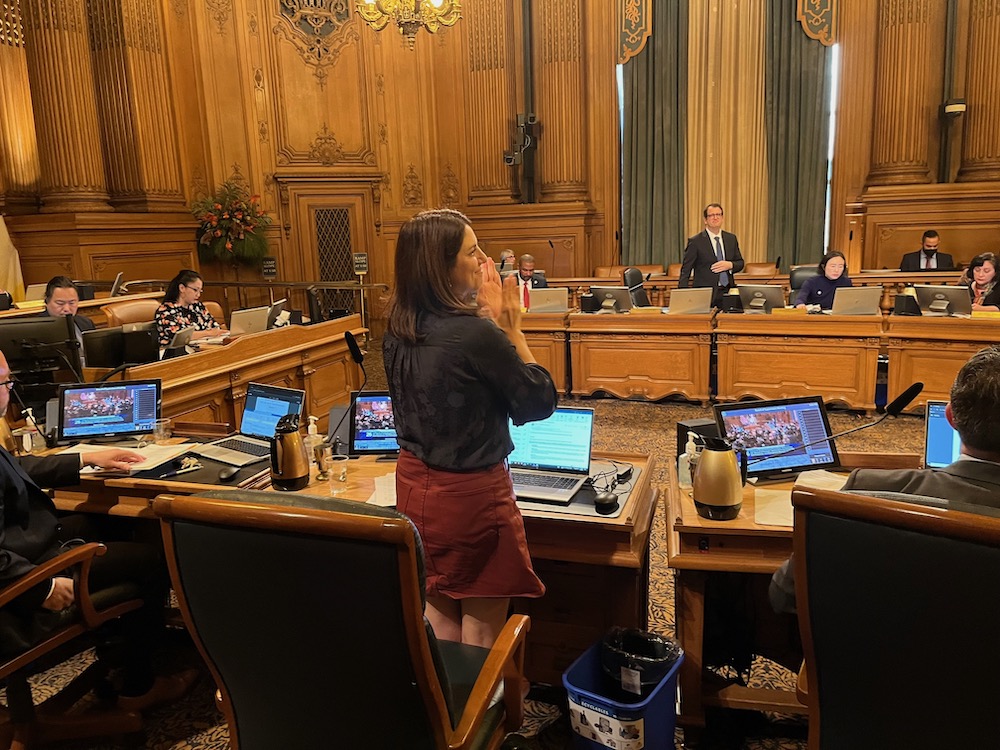
Just about everyone agrees that if Joe Biden were to tell the right-wing coalition running Israel to stop the military action—which is largely funded by the United States—the Israeli government would have to go along.
The resolution he proposed condemns the Hamas attacks on Israel, condemns the Netanyahu government’s attacks on civilians in Gaza, and states:
“The San Francisco Board of Supervisors believes that a just and lasting peace between the Palestinian and Israeli people requires new leadership on both sides with a willingness and a commitment to negotiate in good faith.”
It also calls for a full international investigation of war crimes to “hold all parties accountable.”
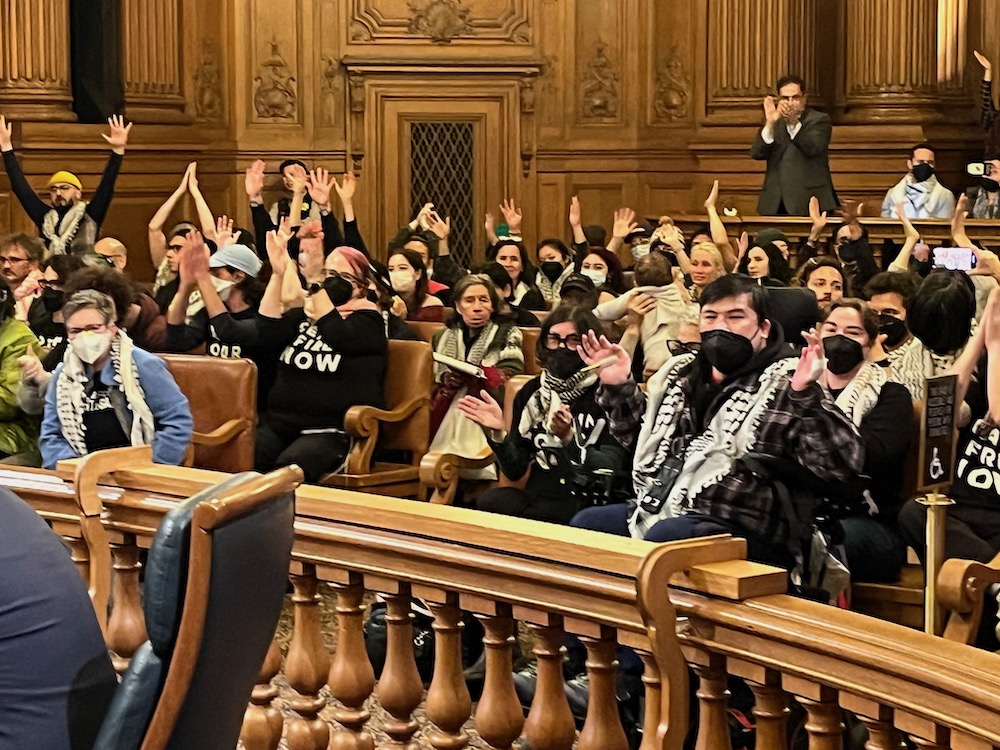
Preston and Ronen both quickly accepted his proposal, as did most of the people in the chambers, who signaled approval by waving their hands and snapping fingers.

Preston thanked Peskin for seeking common ground, but also “all the people who have come forward. I’ve never seen anything like this, the level of engagement and passion, for people to wait for five hours to talk for one minute.”
Ronen thanked the members of the board for “your bravery in taking action like this. It’s going to start spreading to cities all over the country, and Biden will have to listen.
“On days like this it feels like this is still San Francisco.”
Sup. Rafael Mandelman said “I don’t think there is a resolution we can pass today that I will support.”
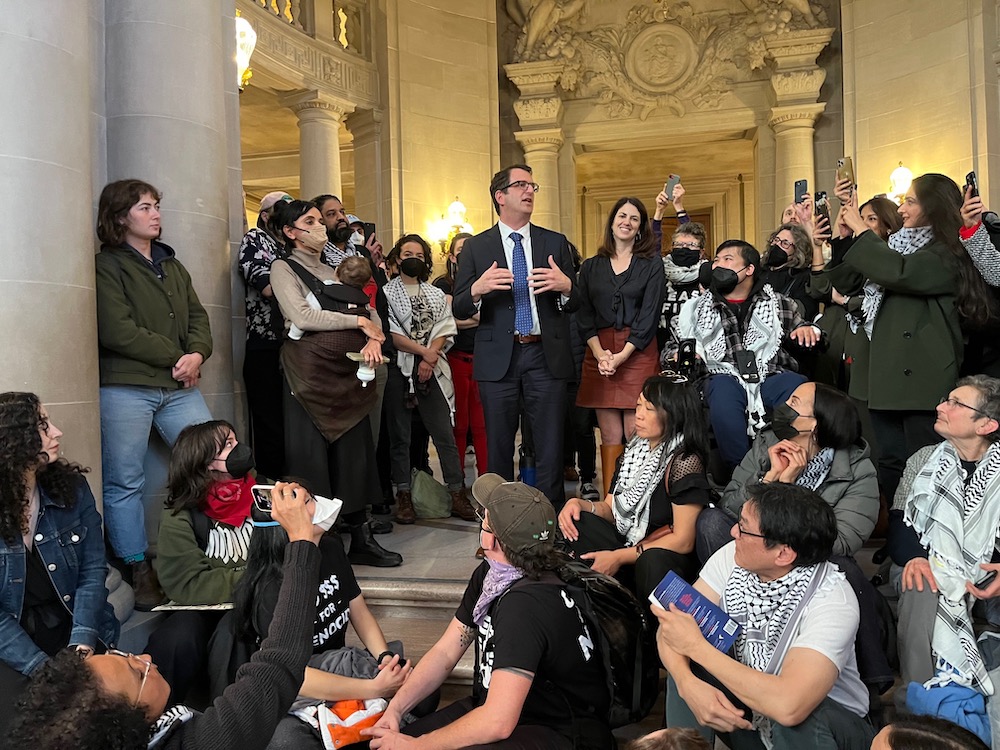
Sup. Catherine Stefani spoke about the terrible crimes committed against women during the Hamas attack—although many women and their kids have also died in Gaza, and the resolution makes very clear that the supes are calling for accountability for “all parties and individuals who have overseen or engaged in war crimes and international human rights violations, including but not limited to gender-based violence and the killing of children.”
While Dorsey and Stefani were speaking, Peskin made sure there were limited outbursts in the chamber—but outside in the hallway, loud chants of “ceasefire now” made it difficult to hear the proceedings.
Safai, who had asked to start the discussions with a moment of silence for all of the people whose lives have been lost, said he had been born in Iran, where gunfire was a fact of life every day, and that religious fanatics in the Islamic Republic had prevented him from seeing his father in the last years of his life.
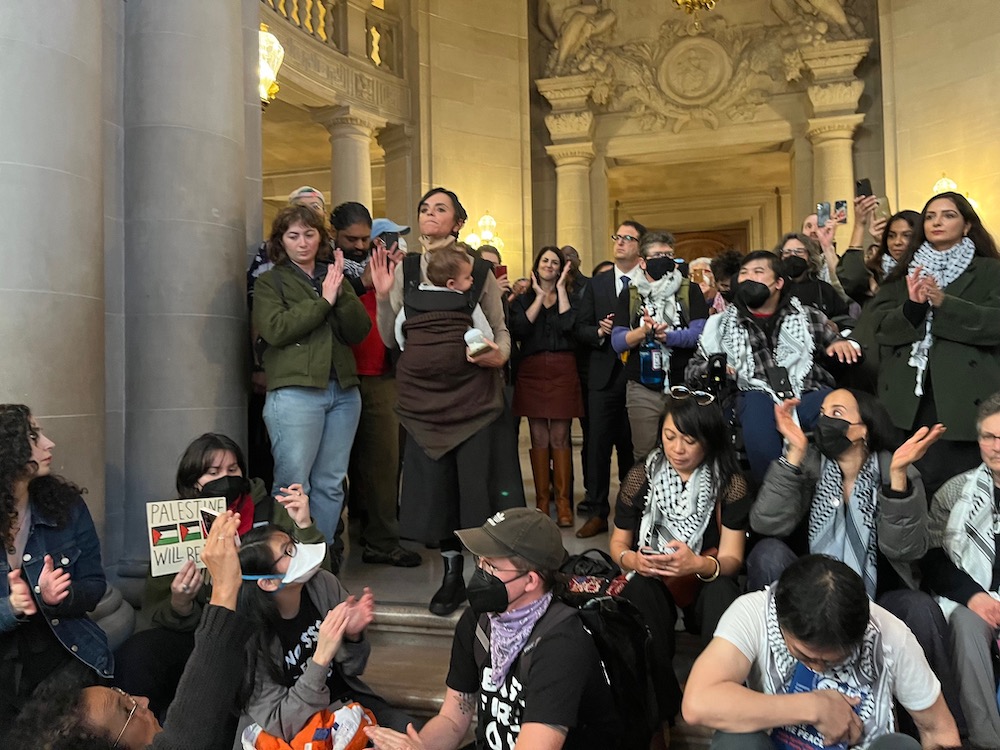
“There are some people here who are being heard for the first time in their lives,” he said.
He also made a point of denouncing the very real antisemitic actions that we have seen in this city.
The vote on the Peskin amendments and the final resolution were the same: 8-3, with Dorsey, Mandelman, and Stefani in opposition.
That means the mayor can’t veto the resolution, since the eight votes constitute a supermajority.
The room erupted in celebration.
At an impromptu rally outside, Lara Kiswani, executive director of the Arab Resource and Organizing Center, said that “today, San Francisco has sent a message to the Biden Administration.” She thanked the supes, the thousands of people who came out to speak, and also allies in the Labor Movement.
Among the major labor voices in support of a ceasefire: SEIU Local 1021, which passed a resolution calling for:
An immediate and permanent ceasefire, The restoration of food, clean water, fuel and electricity to Gaza, The safe passage of substantial humanitarian aid to the Palestinian people, The release of all hostages, including Palestinians being held in Israel jails without charge or trial, Opposing all existing and any future military aid to Israel, The withdrawal of Israeli forces and settlers illegally occupying Gaza and the West Bank, An end to the occupation of Palestine and the apartheid policies of the Israeli state allowing for equal rights and self-determination of all Palestinians.
That goes way beyond what the supes supported.
Ronen told the crowd that Local Progress, an organization of more than 330 progressive elected officials from 220 jurisdictions around the country, sent a letter to the Biden Administration calling for a ceasefire. “He can’t ignore 220 local jurisdictions,” she said




